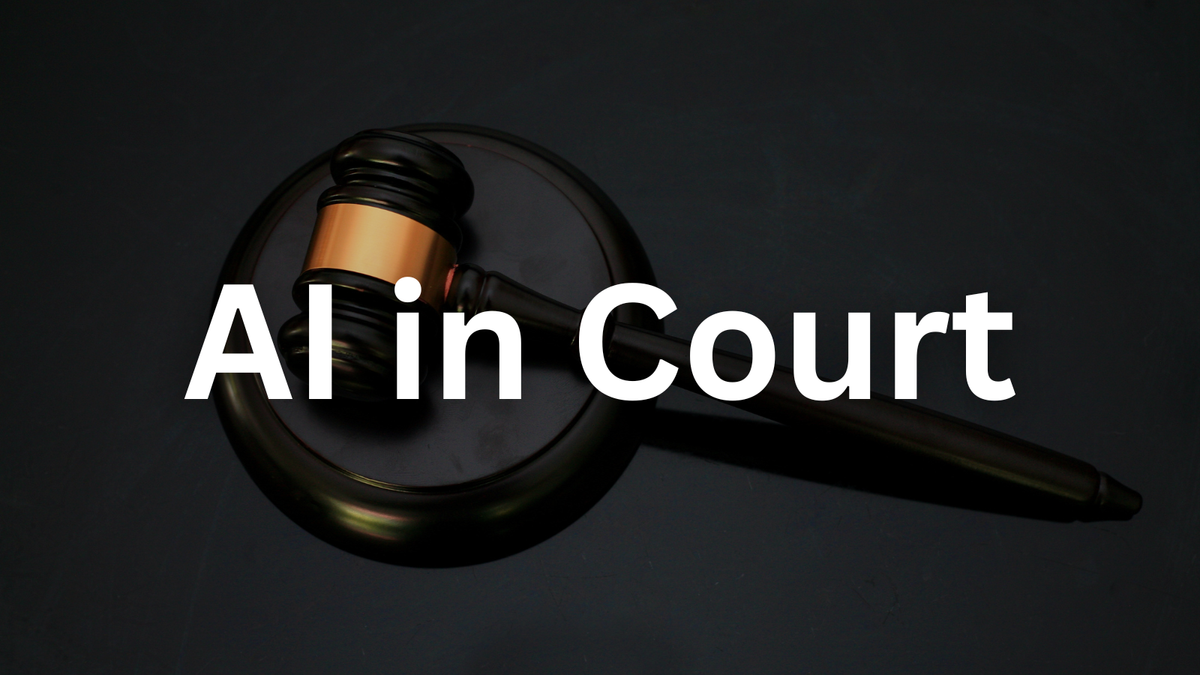AI in Court: Innovation or Misstep? The Day a Robot Lawyer Faced Judicial Fury

A digital avatar arguing before judges? Not so fast. In a surreal courtroom moment, New York appeals court judges shut down an AI-generated lawyer avatar mid-argument in March 2025—a watershed clash between legal tradition and emerging tech. The incident exposes growing pains as AI infiltrates law. Let’s unpack what happened—and why it matters for the future of justice.
🤖 The Avatar Uprising: When AI Crossed the Courtroom Line
- ⚖️ March 26, 2025: Self-represented plaintiff Jerome Dewald played an AI avatar video instead of appearing personally, claiming it would avoid his "mumbling"
- 🚨 Instant Backlash: Judges discovered the deception within seconds, with Justice Manzanet-Daniels declaring: "I don’t appreciate being misled"
- 💥 Broader Pattern: Follows 2023 incidents where lawyers cited fake AI-invented cases, resulting in $5,000 fines
- 🌐 Contrast: Arizona Supreme Court now uses AI avatars "Daniel" and "Victoria" to explain rulings—but only for public education
✅ The Fixes: How Courts Are Trying to Tame AI
- 🔒 Controlled Experimentation: Arizona’s court-approved avatars strictly summarize existing rulings—no creative arguments
- 📜 New Rules: Legal experts push for mandatory AI disclosure forms in filings (proposed in NY and California)
- 🧠 Education: ABA webinars now teach lawyers AI tool limitations, including "hallucination" risks
- 🛡️ Tech Safeguards: Tools like Casetext’s CoCounsel AI flag suspicious legal references
⚠️ Why AI in Law Remains a Minefield
- 🤥 Trust Crisis: 68% of judges surveyed in 2024 said undisclosed AI use damages case credibility
- 👻 Hallucination Hazard: ChatGPT-style tools still invent fake precedents (see Michael Cohen’s 2023 blunder)
- ⚖️ Ethical Gray Zones: No clear rules for pro se litigants like Dewald using AI assistants
- 💸 Access vs Accuracy: While AI could help 80% of low-income Americans with unmet legal needs, unreliable outputs risk miscarriages of justice
🚀 Final Verdict: Can AI Earn Its Law Degree?
The path forward requires:
- 📜 Clear Guardrails: Universal court rules for AI disclosure and validation
- 🔍 Human Oversight: As Daniel Shin of William & Mary Law notes: "You can’t outsource legal judgment to algorithms"
- ⚡ Targeted Use Cases: Arizona-style public education tools show promise vs high-risk courtroom applications
As Dewald’s case proves, courts won’t tolerate AI surprises—but with careful calibration, could synthetic voices someday argue appeals? Or should the bar stay human? The gavel’s in your hands.
Let us know on X (Former Twitter)
Source: Larry Neumeister. An AI avatar tried to argue a case before a New York court. The judges weren’t having it, April 5, 2025. https://apnews.com/article/artificial-intelligence-ai-courts-nyc-5c97cba3f3757d9ab3c2e5840127f765










